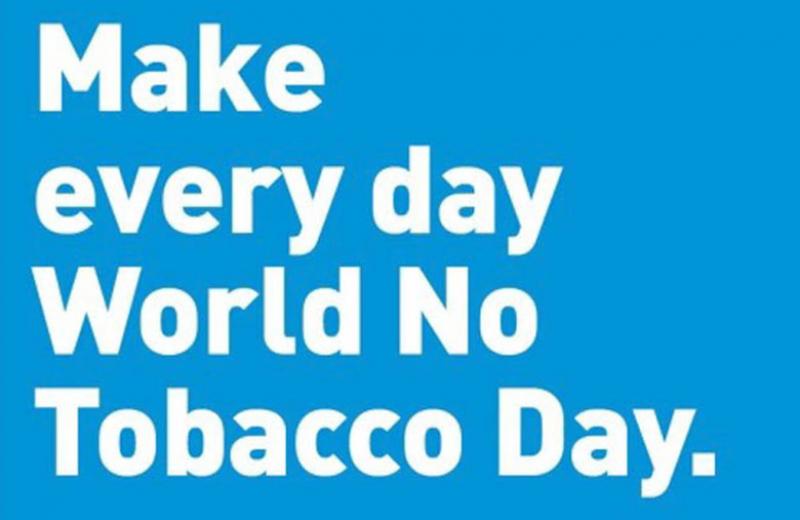I’ve been a registered nurse with Northern Health (NH) for over 13 years. During that time, I’ve had the privilege to care for the health and well-being of people living in this region and our diverse communities. Unfortunately I’ve seen first-hand, the long-term effects that commercial tobacco use has on people in the North.
Tobacco disease affects families
Growing up, I witnessed the complications tobacco use had on my childhood friend’s father; he passed away from lung cancer when we were only 12 years old. Tobacco disease affects the whole family. I know my friend wishes her father was there to watch her graduate, walk her down the aisle, and meet her three children.
Reducing tobacco use
In my role as the Regional Lead for Tobacco Reduction for NH, I try to understand a person’s experience, and I work to reduce disease within our communities through awareness and prevention. This year, the goal of 2019 World No Tobacco Day is to limit the intake of tobacco products and second-hand smoke for ideal lung health.
Do you know these facts about tobacco use?
- Smoking is the leading cause of preventable disease and premature death in Canada.
- Tobacco use kills almost 7,000 British Columbians each year. Over 100 of these British Columbians are non-smokers.
- Children exposed to second-hand smoke are at risk for lung damage.
How to keep your family’s lungs in peak condition:
- The best thing you can do for your health is to quit smoking. If, at first, you don’t succeed, keep trying. You’re not alone, there’s help: Call 1-800-QUIT-NOW or visit ca for free help.
- Avoid letting anyone smoke in your house. If you smoke, wear a “smoking shirt,” and remove it before coming back inside.
- Never smoke in the car, especially when a child is the passenger.
The BC Provincial Smoking Cessation Program includes information for eligible BC residents who wish to stop smoking or using tobacco products. To access your free Nicotine Replacement Therapy, go to the BC Smoking Cessation Program or speak to your local pharmacist.
Other helpful resources:
- Breathe: Lung Association
- Public Health Canada - chief public health officer report (2016)
- Canadian Cancer Society
- Health Canada
- Second-hand smoke (HealthLink BC)
- World No Tobacco Day World Health Organization
Note: in this story, as in most public health messages, “tobacco use” refers to the use of commercial tobacco products like cigarettes and chewing tobacco as opposed to traditional uses of tobacco.














Comments